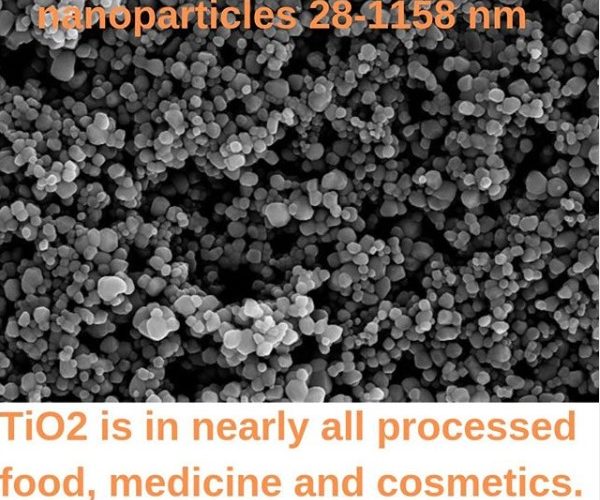Titanium dioxide (TiO2) nanoparticles are a commonly used whitening agent and have been considered an inert substance. It is classified as an Excipient (a pharmacologically inactive substance) by the FDA.
In the pharmaceutical industry, TiO2 is used in most sunscreens to block UVA and UVB rays, similar to zinc oxide. It is also commonly used as pigment for pharmaceutical products such as gelatin capsules, tablet coatings, and syrups. In the cosmetics industry, it is used in toothpaste, lipsticks, creams, ointments, and powders. TiO2 is found in more than 900 food products such as chewing gum and mayonnaise. The average adult consumes between 0.7 and 5.9 mg of TiO2 per kg of body weight (BW) per day throughout their life, and children are the most exposed consuming up to 32.4 mg TiO2/kg BW/day.
In a mouse study published in Frontiers in Nutrition, consumption of food containing TiO2 had a significant impact on the gut microbiota and promoted the growth of an undesirable biofilm. These changes were associated with colonic inflammation, demonstrated by decreased crypt length, infiltration of CD8+ T cells, increased macrophages as well as increased expression of inflammatory cytokines. These changes occurred after only a few weeks of daily TiO2 consumption.
Food-grade TiO2 is not inert, it impairs gut homeostasis which primes the host for disease development. Metainflammation from changes in gut permeability has been previously linked to:
• dementia
• auto-immune diseases
• cancer metastasis
• eczema
• asthma
• autism
Front. Nutr., 14 May 2019 | https://doi.org/10.3389/fnut.2019.00057






